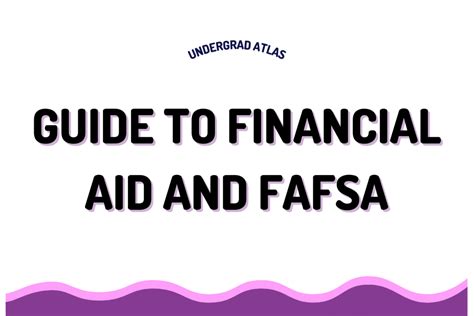Navigating the complexities of the FAFSA (Free Application for Federal Student Aid) can be a daunting task, especially for students and families unfamiliar with the process. However, understanding the ins and outs of the FAFSA is crucial to unlocking the door to a range of federal financial aid programs, including grants, loans, and work-study opportunities. This comprehensive guide will empower you with the knowledge and resources necessary to maximize your FAFSA eligibility and secure the financial assistance you need to achieve your educational goals.

Importance of the FAFSA: Unlocking a World of Financial Aid
According to the National Center for Education Statistics, in 2020-21, over 13 million students received federal financial aid totaling $134 billion. The FAFSA is the gateway to this vast pool of resources, providing access to a wide range of financial assistance programs that can significantly reduce the cost of college.
Understanding the FAFSA Eligibility Criteria
To be eligible for federal financial aid, students must meet certain basic requirements, including:
- Being a U.S. citizen or eligible non-citizen
- Having a valid Social Security number
- Being enrolled or accepted for enrollment in an eligible college or university
- Maintaining satisfactory academic progress
- Not having defaulted on any previous federal student loans
FAFSA Application Process: A Step-by-Step Guide
The FAFSA application process can be completed online at the Federal Student Aid website (https://studentaid.gov/h/apply-for-aid/fafsa). Here’s a step-by-step breakdown of the process:
- Gather necessary documents: Collect your Social Security number, tax returns, and other financial records for both yourself and your parents.
- Create an FSA ID: If you don’t already have one, create an FSA ID, which serves as your electronic signature.
- Begin the FAFSA application: Provide information about your personal data, family income, and assets.
- Provide parental information: If you’re dependent on your parents, include their financial information.
- Review and submit your application: Carefully review your application for accuracy, then electronically sign and submit it.
FAFSA Deadlines and Timelines
Meeting FAFSA deadlines is crucial to maximize your aid eligibility. Deadlines vary by state, but generally, the FAFSA becomes available on October 1st and should be submitted as early as possible. Many schools have priority deadlines for FAFSA submission, so check with the colleges you’re applying to for specific dates.
Maximizing Your FAFSA Eligibility: Strategic Considerations
While meeting the basic eligibility criteria is essential, there are additional strategies you can employ to enhance your chances of receiving maximum financial aid:
- Optimize your financial aid profile: Carefully consider your income and assets, as these factors significantly impact your aid eligibility. Explore strategies to reduce your expected family contribution (EFC), such as saving for college in a 529 plan or contributing to a retirement account.
- Explore scholarships and grants: In addition to federal student aid, numerous scholarships and grants are available from various sources, including colleges, universities, and nonprofit organizations. Research and apply for these opportunities to supplement your financial aid package.
- Negotiate with colleges: Once you receive your financial aid award letters, don’t hesitate to contact the financial aid offices of the colleges you’re considering to inquire about possible adjustments or appeals.
Benefits of Filing the FAFSA: A Path to Educational Empowerment
Filing the FAFSA opens up a range of benefits that can positively impact your educational journey:
- Reduced college costs: Financial aid can significantly reduce the out-of-pocket expenses associated with college, making higher education more affordable.
- Increased access to higher education: Financial aid provides opportunities for students from all backgrounds to pursue their educational goals, regardless of their financial circumstances.
- Enhanced academic success: Studies have shown that students who receive financial aid are more likely to persist in college and achieve higher GPAs.
Conclusion: Securing Your Educational Future with Max Colls FAFSA
Understanding the max colls fafsa is essential for students seeking financial assistance for college. By carefully following the application process, exploring strategic optimization techniques, and recognizing the benefits of filing the FAFSA, you can unlock a world of financial aid opportunities and secure the resources necessary to achieve your educational aspirations. Remember, the FAFSA is not just a form; it’s an investment in your future that can empower you to overcome financial barriers and pursue your dreams.
